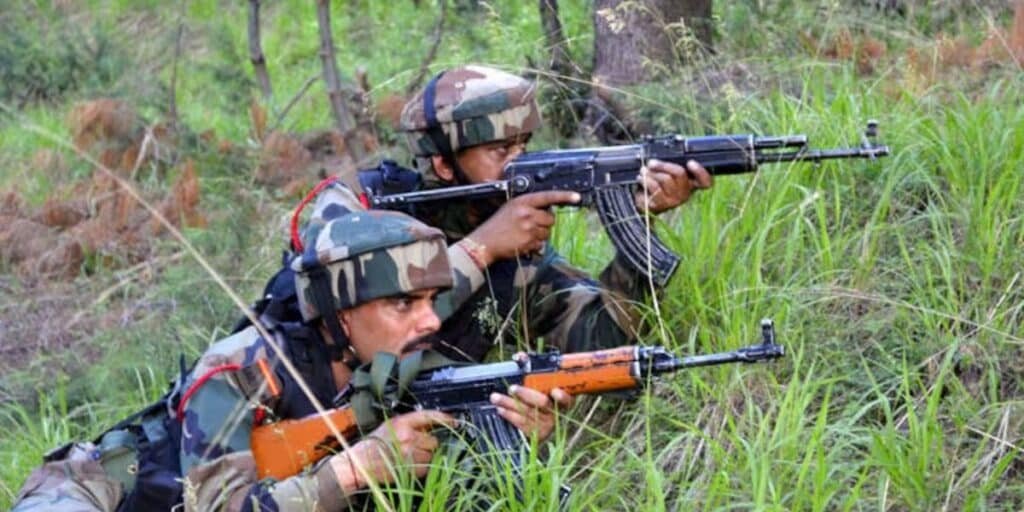Webdesk: Three alleged suspects have been killed in a fierce gunfight as part of the Indian Army’s ongoing “Operation Mahadev,” according to an official update from the Army’s Chinar Corps.
The operation, which is still underway, began after security forces made contact with suspected militants in the Lidwas area near Harwan, close to Dachigam National Park in Indian Illegally Occupied Jammu and Kashmir (IIOJK).
The area, known for its rugged and hilly terrain and popular among trekkers, posed challenges as troops moved through it during the combing operation. Indian Officials said two rounds of gunfire were heard early on as the forces began their search following intelligence inputs about the presence of militants in the region, according to indian .
The Army posted on its official X (formerly Twitter) handle, “OP MAHADEV – Contact established in General Area Lidwas. Operation in progress.” Later in the day, the Chinar Corps confirmed, “Three terrorists have been neutralised in an intense firefight. Operation continues.” Additional reinforcements have been deployed to support the soldiers already on the ground.
OP MAHADEV
— Chinar Corps🍁 – Indian Army (@ChinarcorpsIA) July 28, 2025
Contact established in General Area Lidwas. Operation in progress.#Kashmir@adgpi@NorthernComd_IA pic.twitter.com/xSjEegVxra
The identity and group affiliation of the three alleged suspects are yet to be confirmed. While the Indian forces have been hunting for those behind the April 22 incident in Pahalgam, which claimed 26 lives, it is not yet clear whether the individuals neutralised during Monday’s encounter were directly involved in that incident.
According to the Press Trust of India (PTI), intelligence inputs gathered over the past few weeks had pointed to terrorist movement in the Dachigam area, prompting the launch of “Operation Mahadev” as part of the larger crackdown.
The conditions under which “Operation Mahadev” was launched by the Chinar Corps of the Indian Army in the Lidwas region pose a big question.
As the Indian Parliament is on session and the BJP government in power comes under lots of fire due to the failure of Operation Sindoor, this last minute military action did not appear as a serious counterterrorism act; instead it appeared like a diversionary tactic.
The timing of the launching of this operation is too convenient as the opposition requires explanation on major security and intelligence breakdowns. There is also the suspicion that this would be a fabricated event, all the more so because that has been the style of the Modi government to divert attention disarming criticism.
There is a real concern that innocent people might be killed and then labelled as “terrorists” to build a narrative linking them to the Pahalgam attack, with claims of Pakistani involvement. This tactic, using false flags, manipulating facts, and spinning stories through friendly media, is nothing new for the RSS-BJP setup.
The Modi government appears increasingly reliant on propaganda to survive politically. And in the process, institutions like the Indian Army risk being used to serve political agendas.
These kinds of operations can no longer be viewed as one-off incidents; they seem to be part of a broader pattern of state-sponsored misinformation, driven by a government under pressure and trying to cover its tracks.
In another instance, a fresh political storm has erupted just before the Indian Parliament debate on Operation Sindoor, following comments made by senior Congress leader P Chidambaram.
In a recent interview, Chidambaram raised doubts over Pakistan’s involvement in the Pahalgam false flag, suggesting that “homegrown terrorists” could be responsible.
He also challenged the evidence presented to give a claim that the attackers were across the border, enquiring on what evidence really connects the massacre to Pakistan.
Read more: Caught on camera: Indian politician brazenly bribes journalist in Bihar






